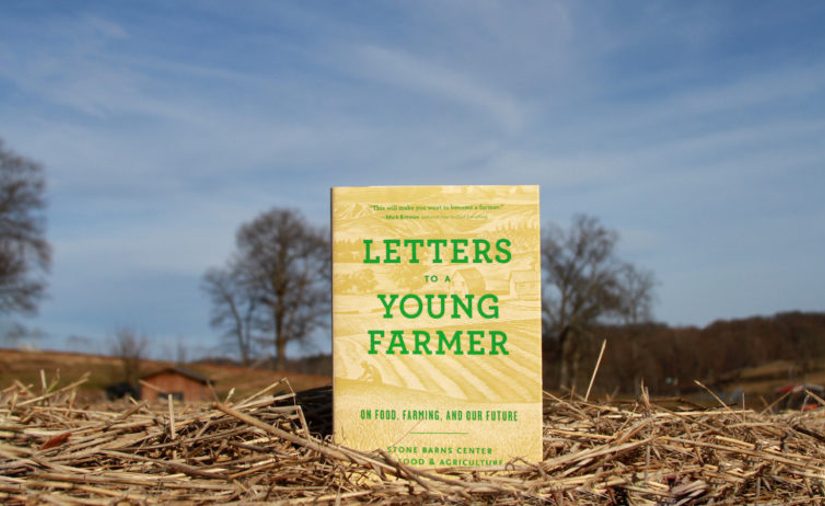Letters to a Young Farmer, Stone Barns Center for Food & Agriculture
Dear Mrs. Barbara Kingsolver,
“Maybe you’ve even had to defend that choice already against family or academic advisors that don’t see the future in farming” (15).
I get this a lot from my mom especially, but everyone seems to have their two cents about me wanting to become a farmer. My mom left the family farm to find something better for herself, so I can understand where she is coming from. She grew up on a cattle and grain farm from in a tiny town—about 200 people total—in southern North Dakota.
It is ironic, however, that people seem to believe that there is no future in farming as farming is the past, present, and future. Without it, no one eats. It may not be glamorous or even easy most days, but we all need food. Farming and people willing to farm are absolutely essential to a future of any kind.
“Traditionally, farms passed down through generations, but at this point in history, that’s not likely to be your case. It will be up to you to find your farming family, people who can teach you how to make smart choices and forgive your own mistakes. You’ll meet long-timers at conferences, and, if you’re lucky, in your own neighborhood. Even if some of these old-schoolers have approaches that strike you as outmoded, they stayed on the land when everyone else was leaving, and for this they deserve respect” (16).
This quote struck a chord, as it is two-fold in many ways for me. I come from a farming background and I feel conflicted about it for a lot of reasons. On one hand, these are some of the most resilient and resourceful people I know, willing to help one another out on a whim’s notice. Further, they have a deep rootedness to the land they live and farm on. Yet, on the other, they utilize monocropping, pesticides, and massive machinery—things I just don’t think should be incorporated into our food system. But I really like you saying “Even if some of these old-schoolers have approaches that strike you as outmoded, they stayed on the land when everyone else was leaving, and for this they deserve respect” (16) because it is so true. They survived the 1980s, with massive farm foreclosures and farmer suicides, and they persevered. Their practices may not be what I think of as ideal, but they’ve managed to stay.
Further, I really wanted to get into farming because I come from a long line of farmers, but those considered the farmers were men. My male cousins, my uncles, my grandpa, my great-grandpa. Even though the female members of my family have always had gardens, they have never really been considered farmers the way the men have been. Instead they are seen as caretakers of children/elders or helpers of their husbands, growing food on the side for their families to eat while the crops the men grew went to market. I remember as a kid helping out in my grandma’s garden, growing tomatoes, watermelons, herbs, sweet corn, cucumbers, and flowers of every kind. While my grandpa was growing GMO corn using huge John Deere tractors, combines, and pesticide-spraying airplanes, she grew fairly low-tech and organically.
I got into farming because I really want to be able to pass down that familial legacy to my children and want to be able to learn more about my roots to the land in order to eventually go on to be more self-sufficient the way my female relatives have allowed my family to be for generations. It’s the women gardeners of my family that inspired me to want to farm.
Sincerely,
Allie Kuppenbender
